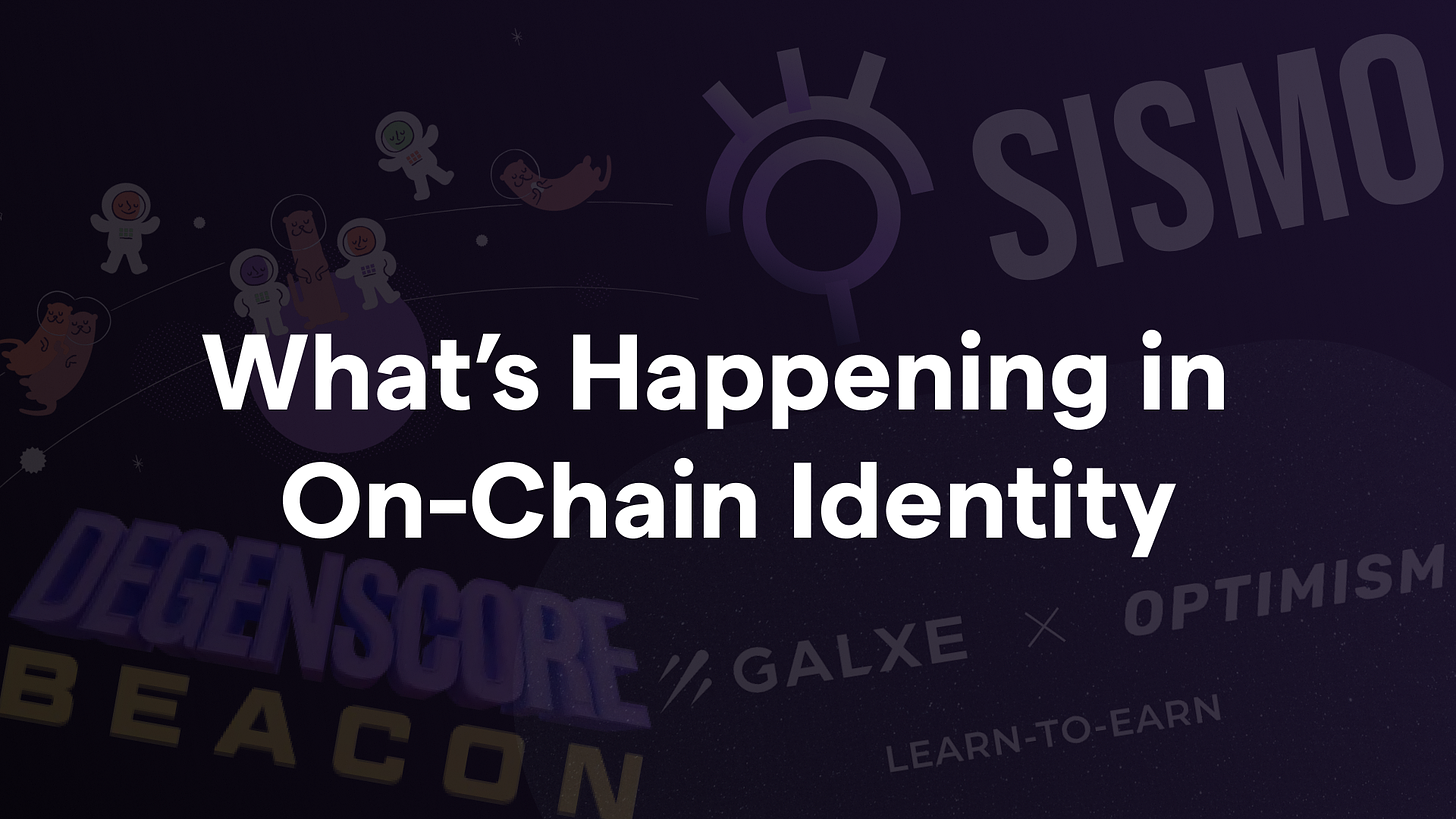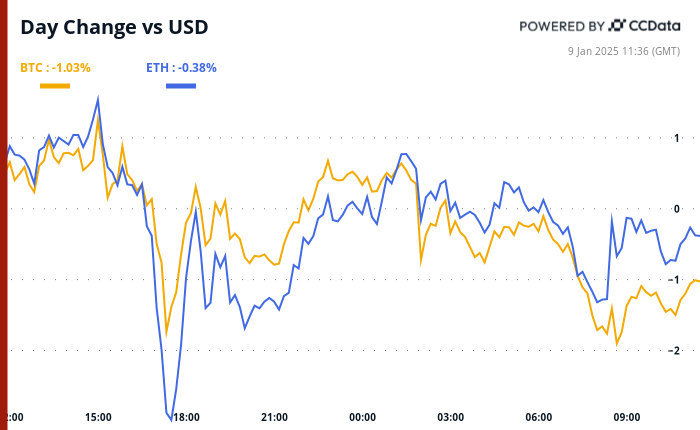Hey all! Given the uptick in everything happening in the on-chain identity ecosystem, I thought I’d write a piece around some of the interesting developments happening in the space and a little excerpt about them. Let’s get into it!
The folks over at DegenScore launched a soulbound NFT token that allows you to encode how much of a Degen you are on-chain. The idea is that you can then use this soulbound with various applications to receive various benefits or access to special products/deals. It’s going to become more common to see the use of Soulbound NFTs tied to addresses to grant special benefits. Go check it out if you haven’t already!
A new identity startup in town has raised to helps DAOs issue badges that recognise a contributor’s reputation. Similar to DegenScore, they use Soulbound NFTs to enable this process. The round was closed with a lot of DAO founders as angels with some more traditional Web2 VCs. Interestingly enough I do feel like this has an overlap with the DAO tooling category but a different lens.
Optimism has collaborate with Galxe to issue NFTs that are earned as users participate in various apps in their ecosystem. This quests-style approach to growth is one pioneered by RabbitHole and Layer3 as well. While they do captivate large numbers of users the question is always what percentage of newly acquired users retain and how many are airdrop hunting. Regardless, I expect these sorts of campaigns to accelerate in the future as addresses accumulate more valuable identity points.
Quite the confusing mix of letters! Zero-Knowledge Souldbound Tokens by Sismo are starting to roll out. The idea here is that you can have use the history/identity of one of your addresses to issue zero-knowledge proof based NFTs that prove one of your addresses contain the trait you claim to have. This badge is around your activity on Github which protects the link between your Ethereum address and your Github username.
This isn’t exactly “news” but really something neat that I found out about ENS and how it can integrate with DNS. The idea here is that you can register a DNS domain, set a record that specifies a Web3 address to manage the ENS record and now you have an ENS that uses a regular domain name. There’s probably some cool things you can do with this but we’ll leave that for another time.
Anyways, that’s a wrap for this edition! Let me know what you thought of this type of content!
Read More: kermankohli.substack.com










 Bitcoin
Bitcoin  Ethereum
Ethereum  Tether
Tether  XRP
XRP  Solana
Solana  Dogecoin
Dogecoin  USDC
USDC  Cardano
Cardano  Lido Staked Ether
Lido Staked Ether  TRON
TRON  Avalanche
Avalanche  Wrapped stETH
Wrapped stETH  Sui
Sui  Toncoin
Toncoin  Chainlink
Chainlink  Shiba Inu
Shiba Inu  Wrapped Bitcoin
Wrapped Bitcoin  Stellar
Stellar  Hedera
Hedera  Polkadot
Polkadot  WETH
WETH  Bitcoin Cash
Bitcoin Cash  LEO Token
LEO Token  Litecoin
Litecoin  Uniswap
Uniswap  Pepe
Pepe  Hyperliquid
Hyperliquid  Wrapped eETH
Wrapped eETH  NEAR Protocol
NEAR Protocol  Ethena USDe
Ethena USDe  USDS
USDS  Internet Computer
Internet Computer  Aptos
Aptos  Aave
Aave  Mantle
Mantle  POL (ex-MATIC)
POL (ex-MATIC)  Cronos
Cronos  Ethereum Classic
Ethereum Classic  Render
Render  Bittensor
Bittensor  MANTRA
MANTRA  Monero
Monero  Tokenize Xchange
Tokenize Xchange  Artificial Superintelligence Alliance
Artificial Superintelligence Alliance  Dai
Dai  Virtuals Protocol
Virtuals Protocol  Arbitrum
Arbitrum